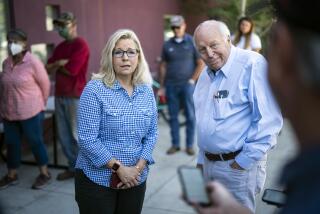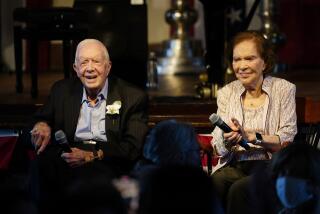Dick Cheney: Are heart transplants unusual for older patients?
- Share via
(This post has been corrected. See note at bottom.)
Is it unusual for senior citizens to receive heart transplants? The question is being asked in the wake of news that former Vice President Dick Cheney just got one at age 71. The short answer: less unusual than it used to be.
Consider the following numbers, courtesy of the United Network for Organ Sharing, which manages the national transplant system for the federal government. Of the 2,322 hearts transplanted nationwide last year, 332 -- or about 14% -- went to patients 65 and older. Going back to 1990, that rate was 3.4% -- just 72 out of 2,107 hearts.
The majority of heart transplants -- 44% last year -- have long gone to patients 50 to 64.
While more older patients are considered viable candidates for transplants, the total number of hearts available each year has held steady over the last two decades. As a result, giving hearts to older patients means that there are fewer to go around to everybody else.
That problem has been alleviated to a large degree by medical advances -- both drugs and mechanical pumps like one Cheney had -- that keep patients alive longer while they wait. Last year, 331 people died while waiting for a heart, down from 785 in 1995, the earliest year for which that data is available.
Last year, heart transplants were performed at 126 U.S. hospitals. The doctors at each program decide who to put on their waiting list. Larger centers tend to take riskier -- and older -- patients, whereas smaller transplant programs tend to select patients with better chances for survival.
At the Inova Fairfax Hospital, where Cheney received his transplant, 2 of the 19 heart transplants -- or nearly 11% -- performed last year went to patients 65 and older.
One argument against giving scarce organs to older patients is that those patients are much more likely to die from some other cause before the organ wears out. In the case of kidneys, the organ transplanted most frequently, that concern has spurred an effort to match the youngest organs with the youngest patients, leaving the older organs for the older patients. The proposal has been highly controversial, with older patients arguing that they deserve the same chances for high-quality kidneys as everybody else.
[Corrected at 1:35 p.m., March 26: An earlier version of this post said Dick Cheney is age 70.]
Follow me on Twitter @LATZarembo.







